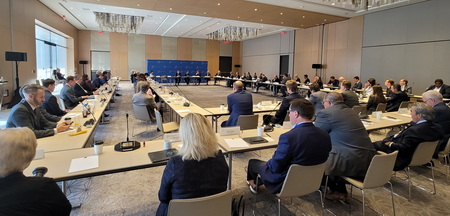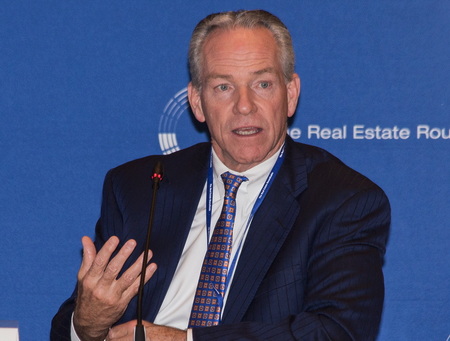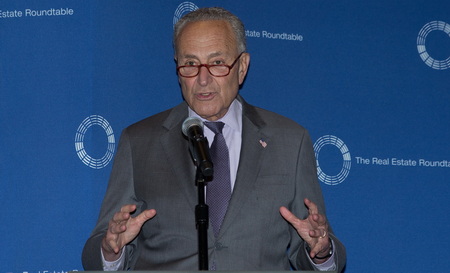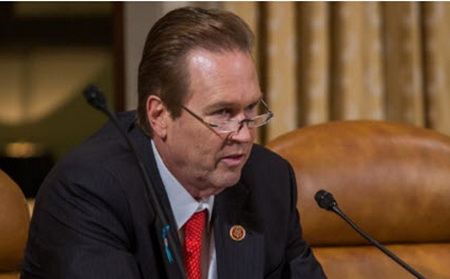
Industry leaders and national policymakers met this week for The Roundtable’s fall meeting to discuss the U.S. political and economic environment, including issues such as inflation, housing, labor shortages, climate change, and November’s midterm elections. (Roundtable Executive Policy Summary and Policy Issue Profiles)
National Policy Issues & CRE
Speakers at The Roundtable’s Sept. 20-21 meeting included:




Clean Energy

Economic Conditions & Political Landscape


Next on The Roundtable’s meeting calendar is the all-member State of the Industry Meeting on Jan. 24-25, 2023 in Washington, where The Roundtable will unveil its 2023 Policy Agenda.
# # #
 A Securities and Exchange Commission (SEC) advisory panel on investor issues this week endorsed the agency’s proposed climate disclosure rule, including a requirement for registered companies to support Scope 3 indirect emissions “if material” to investors. (Bloomberg Law and advisory panel recommendation, Sept. 21)
Scope 3 & CRE
A Securities and Exchange Commission (SEC) advisory panel on investor issues this week endorsed the agency’s proposed climate disclosure rule, including a requirement for registered companies to support Scope 3 indirect emissions “if material” to investors. (Bloomberg Law and advisory panel recommendation, Sept. 21)
Scope 3 & CRE


In advance of the November midterm elections, House Republican Leader Kevin McCarthy, above, and the House GOP Conference released their Commitment to America today in Pittsburgh. The platform includes forward-looking tax and economic policy proposals that, if enacted, would impact commercial real estate in important ways. (Document and video, Sept. 23)
GOP Tax Proposals
TCJA Tax Cuts

CRE Policy Webinars

“Implications of the Inflation Reduction Act for CRE” will be the focus of a CRE Finance Council webinar on Sept. 28 featuring Real Estate Roundtable SVP & Counsel Duane Desiderio. (CREFC registration)
Desiderio will also participate in another Sept. 28 virtual briefing on the Inflation Reduction Act’s clean energy tax incentives, hosted by the Urban Land Institute (ULI registration). The webinar features members of The Roundtable’s Sustainability Policy Advisory Committee (SPAC)—Immediate Past SPAC Vice Chair Dan Egan (Managing Director, Real Estate ESG - Americas, Blackstone), Suzanne Fallender (VP Global ESG, Prologis), and ULI EVP Billy Grayson.
# # #

Federal regulators are inviting comment on an updated policy statement that addresses: (1) short-term commercial real estate loan accommodations; (2) revisions and additions to examples of CRE loan workouts; and (3) accounting developments for estimating loan losses. (Federal Register, Sept. 15 and GlobeSt, Sept. 19)
Why It Matters
Update & Expand

The Roundtable’s Real Estate Capital Policy Advisory Committee (RECPAC) plans to work on comments, which are due by November 14, 2022.
# # #